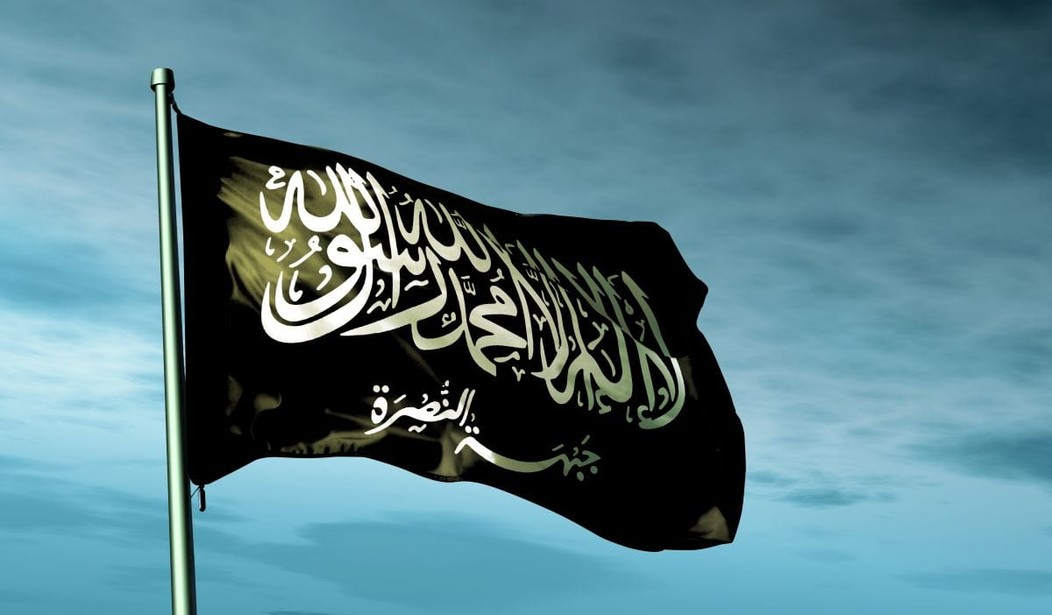“Don’t do stupid stuff,” is the supposed goal of Obama’s foreign policy. But what happens if the real stupid stuff is not to do anything at all?
The Obama administration’s hesitant, timid policy in Syria has led to a vacuum that is rapidly being filled by the “destroyed” terror group Al Qaeda. In fact, AQ has begun to unite various Islamist militias under its banner in Syria and, like the Islamic State, establish itself as a major player.
Al Qaeda’s presence and influence in Syria was never confined to its formal affiliate, the Nusra Front. It dispatched numerous senior leaders and strategists to oversee the creation of a vanguard for al Qaeda within the Syrian revolutionary movement after the start of the civil war in 2011. These operatives, which the U.S. government calls the “Khorasan group,” not only advised the Nusra Front’s top leadership, but also leaders of other Syrian opposition groups. Al Qaeda’s intent was to cultivate a series of rebel groups sympathetic to its aims while building a formal affiliate to normalize and diffuse its ideology. Al Qaeda probably also intended to establish a buffer against the possibility that an American intervention could destroy al Qaeda’s entire network by eliminating one organization.
The Syrian war now involves U.S.-vetted and armed moderate groups, but also includes a significant component belonging to either Jabhat Fateh al-Sham, the successor of the Nusra Front, or its close ally, Ahrar al-Sham. Both are now vital components of the largest opposition coalitions operating in Aleppo, Jaysh al-Fatah, and Fatah Halab.
Ahrar al-Sham epitomizes how al Qaeda is developing a network of sympathetic local revolutionary forces: The Syrian opposition group is a key node in the al Qaeda network that has nonetheless achieved the image of a “mainstream” Syrian opposition movement. It is the largest and most powerful recipient of al Qaeda’s tutelage after Jabhat Fateh al-Sham.
There is a common perception that Ahrar al-Sham never fully absorbed al Qaeda’s ideology, despite al Qaeda’s intent to use the group as part of its Syrian vanguard. Current U.S. policy assumes that Ahrar al-Sham can be split from al Qaeda and reconciled to a future Syrian state. Defenders of Ahrar al-Sham further argue that al Qaeda does not exert operational control over the organization and conclude that Ahrar al Sham can be dealt with separatelyfrom al Qaeda. This is little more than wishful thinking.
There’s a lot of that going around Washington lately when it comes to Syria.
The most prominent mentor for Ahrar al-Sham’s original leadership, Abu Khalid al-Suri, was a veteran fighter in Afghanistan who worked closely with al Qaeda. He was also a student of Salafi jihadi strategist Abu Musab al-Suri, a leading al Qaeda ideologue who argued that in the near-term, al Qaeda should tolerate a range of actors within the Muslim community. Nor did al Qaeda’s influence over Ahrar al-Sham end with his death in 2014: A Khorasan cell member named Rifai Taha subsequently took his place as the liaisonbetween Ahrar al-Sham and the Nusra Front.
Ahrar al-Sham’s activity demonstrates that its strategy is joined at the hip with al Qaeda, and represents a local vanguard for the transnational jihadi group in Syria. Al Qaeda’s signature is apparent in Ahrar al-Sham’s campaign to transform the religious identity of Syrians. The group governs through a series of sharia courts throughout the northern Idlib and Aleppo provinces, operating in parallel to the Nusra Front, which enforces hard-line rulingssuch as veil requirements for women and restricts freedom of the press.
Both Presidents Bush and Obama did their best to weaken Al Qaeda to the point that they were, at one time, a shadow of their former selves. But affiliates of the terror group in the Arabian Peninsula and the Maghreb have grown in strength over the last few years and the terror organization has taken advantage of the chaos in Syria to build a coalition of Islamist groups capable of fighting President Assad.
Short of intervention, there isn’t much we can do about it.
Russia is not going to let radical Islamists rule Syria. Nor is Iran going to allow a theocracy made up of radical Salifists to govern. But a stalemate that goes on for years will allow AQ to solidify its position and perhaps give them a launching pad for attacks on the west.










Join the conversation as a VIP Member